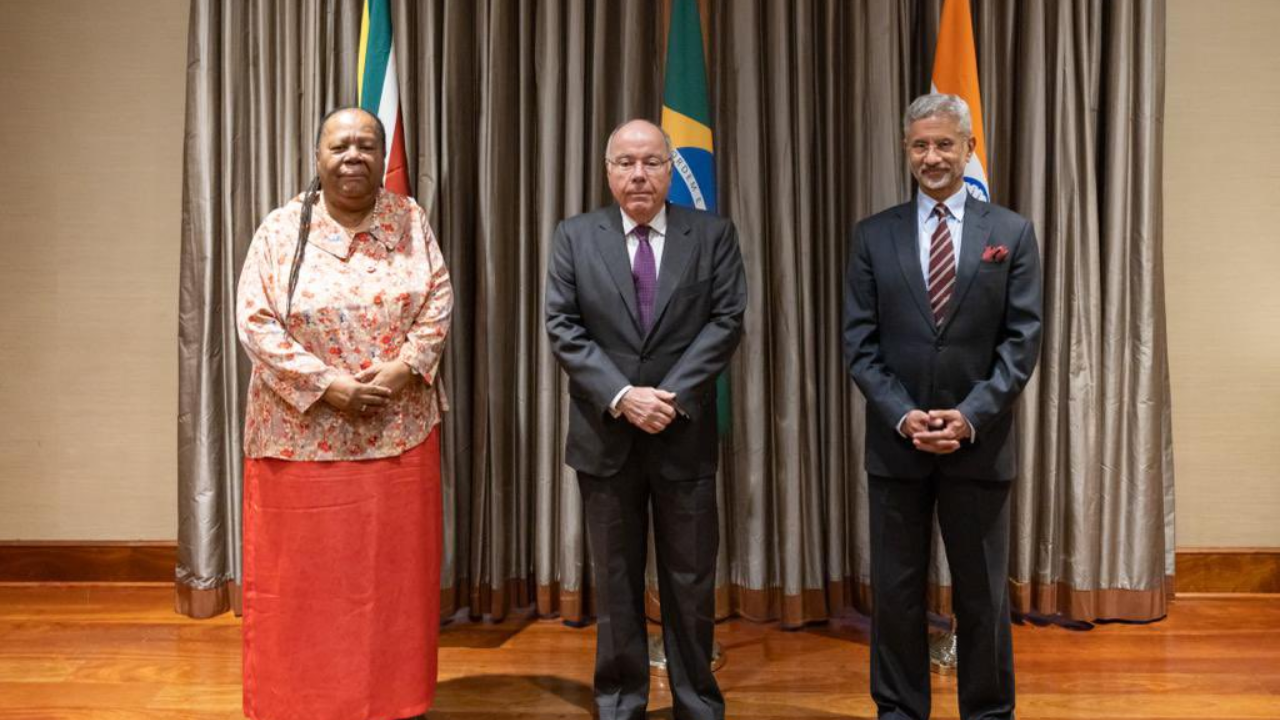Ministers representing the IBSA alliance, consisting of India, Brazil, and South Africa, have reaffirmed their shared commitment to combat global terrorism and eliminate terrorist safe havens worldwide. The trio denounced terrorism in all its forms and wherever it arises during the 11th IBSA Trilateral Ministerial Commission meeting, which took place on the sidelines of the 78th United Nations General Assembly session in New York.
Emphasizing their collective focus on sustainable development, overcoming developmental challenges, and maintaining independent foreign policies, the ministers also strongly condemned ongoing terrorist attacks worldwide. They reiterated their unity in the fight against terrorism.
A joint statement issued after the meeting stressed the need to establish a comprehensive international counter-terrorism framework within the boundaries of international law and expressed support for the United Nations’ central coordinating role in international counter-terrorism cooperation. The ministers underscored that all nations have a responsibility to prevent and counter terrorism, including addressing cross-border terrorist movements, terrorist financing, and actions originating from their territories.
Furthermore, the ministers expressed their dedication to accelerating the adoption of the Comprehensive Convention on International Terrorism at the United Nations General Assembly and emphasized the exclusive authority of the UN Security Council to impose sanctions. They called for immediate reforms in the working methods of UN Security Council Sanctions Committees to improve effectiveness, responsiveness, transparency, and objectivity in listing proposals.
Beyond their anti-terrorism efforts, the ministers of the three nations agreed to collaborate on various matters of mutual interest, encompassing international trade and investment, environmental concerns, climate change, counterterrorism, social inclusion, food security, development, health, and education.
Discussions during the meeting also touched upon climate change, with the ministers reaffirming their commitment to the United Nations Framework Convention on Climate Change, the Kyoto Protocol, and the Paris Agreement. They urged all countries to work together for the implementation of the Paris Agreement, with a focus on principles of equity and differentiated responsibilities and capabilities. The ministers called on developed countries to provide consistent, predictable, and sufficient financing, technology transfer, and capacity-building support to developing nations to address climate change and its impacts.
Additionally, the ministers stressed the urgency of taking action to address development and climate challenges, promote sustainable development, and protect biodiversity. They welcomed Brazil’s presidency of the group of like-minded megadiverse countries for 2023-2024 and emphasized the importance of enhanced coordination within this group and other multilateral environmental forums.
Indian External Affairs Minister S. Jaishankar led the Indian delegation during his week-long visit to New York, where he addressed the High-Level session of the 78th UNGA. Following his UNGA-related engagements, he traveled to Washington DC for bilateral meetings with US counterparts, including Secretary of State Antony Blinken, senior US administration officials, business leaders, and think tanks.
Also Read: PM Modi: Varanasi’s International Cricket Stadium to Aid Cricketers and Drive Purvanchal’s Economic Growth
Catch all the Latest Business News, Breaking News Events, and Latest News Updates on NewsX















